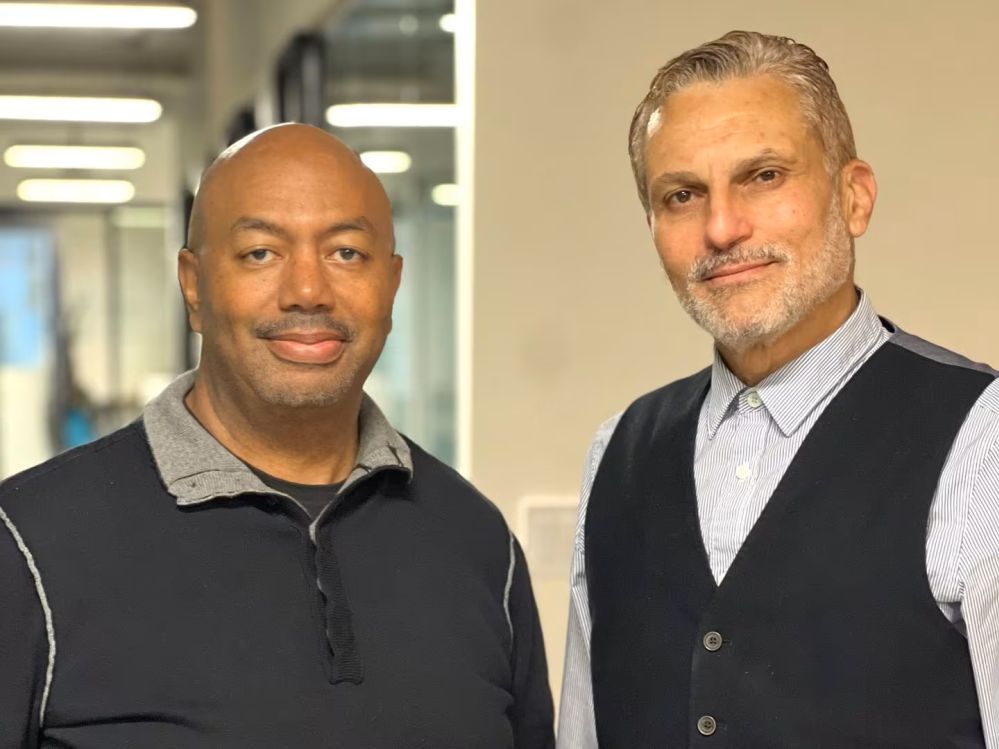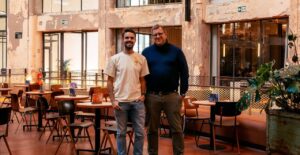- Boston-based venture firm Material Impact has announced Material Impact Fund III, a $352 million fund to back inception-stage companies developing products enabled by innovations in materials science.
- The firm, which has $800 million in assets under management and 30 portfolio companies, has teamed up with new and existing LPs including university endowments, foundations, family offices, and fund-of-funds (pooled investment funds that invest in other types of funds) for Fund III.
- From tackling the “consequences of extreme weather, supply chain vulnerabilities, increased demand on our energy and transportation infrastructure, or the globe’s shrinking clean water supply, Fund III will support the building of companies solving these problems,” says Material Impact.

Exclusive focus on materials science
In a post on the firm’s website announcing the new fund, cofounders Adam Sharkawy and Carmichael Roberts explain: “You can trace almost any major disruptive innovation in any market or industry back to an underlying innovation in material science.
“Whether it is what alloys have done for automotive, composite materials for aerospace, or what polymers and the element of silicon have done for almost every aspect of our lives, they all exist because of advances in materials.”
“We’re proud to be among the first firms that focused exclusively on material science as more firms are moving into this exciting and important space.”
Solving big problems
Sharkawy tells AgFunderNews: “From the outset when we raised Fund I in 2017, we’ve been focused on large-scale problems, on what we call Maslowian needs… like water scarcity, the food supply chain, sustainable manufacturing, mobility and energy, and under-represented healthcare.
“And over the last seven years we’ve come to appreciate that these topics will require an entire ecosystem of stakeholders spanning the consumer, governments, and large corporates, time, and a lot of capital. So we want to be able to go deeper with [our portfolio] companies and support them through not one or two rounds of financing, but all the way through their mission.”
“We start early with checks as small as sub $1 million, where we’re like the third person in the garage with the entrepreneur, and then do we’ll do $5 million plus or minus in the first syndicated check [when other investors come in].”
He adds: “But we have to ensure that we’re using capital not in building infrastructure, but in building the core value proposition that can then unlock other stakeholders to come in and help build the infrastructure.”
Typically, he says, “We start with the problem that we will create a focus area around and we talk to academic thought leaders, foundations, and large corporates in that space and develop a thesis that basically says, what are the one or two levers that can unlock growth in that space?”
That then serves as “our compass to start looking for technologies,” he says. “We’ll often find early-stage technologies that are just spun out of a university, or things that may still remain in a university setting and we’ll spin them out, be the initial operators and then hire a leadership team.”
Working with strategics
Working with strategics can be valuable “not because of the capital, but because there’s a partnership opportunity that can accelerate things and provide [startups with access to] resources that that would be too expensive to replicate,” he adds.
“But there are other kinds of technologies and companies where the exact opposite is the case. We may ultimately want to partner with strategics, but we will [initially] steer clear because they can slow things down when a startup needs to be agile.”
According to Sharkawy, “We already have several companies that are at or approaching unicorn status from our first tranche [of investments]. So we’re on a good trajectory, but you know, it’s still early days.”
‘Tricky’ foodtech and agtech
In general, says Sharkawy, “foodtech and agtech are very tricky” areas for investment “because they face really large problems with very margin sensitive businesses. You have to have enough scale [to make money] but how to you get to scale in the first place? You have to find a way to transcend [this problem].”
One company he believes can achieve this is Texas-based ‘green ammonia’ startup Talus (a recent investment fort Material Impact) which provides modular, small-scale ammonia production facilities that can be shipped to remote growing regions and allow farms or groups of farms to produce their own fertilizer on site using renewable energy.
Rather than using fossil fuels to source hydrogen for ammonia production, Talus uses electrolysis (passing electricity through water to produce hydrogen and oxygen), with electricity powered by renewables, he explains.
“Aside from the environmental benefits, it’s cheaper and you can do it in situ, on a farm or farmland, and one of Talus’ first customers is in Africa, not a geography you usually associate with being an early adopter of high-tech innovation, because they can be really expensive. But in this case, it’s actually cheaper because you also avoid all the distribution costs.”
Another area where Material Impact “has a pretty large focus is in synthetic biology,” he says, but with certain caveats. Portfolio company Debut, for example, is particularly exciting because it has a ‘cell-free’ approach to biomanufacturing, which can increase efficiency and unlock opportunities to biosynthesize a far wider set of natural ingredients (read more here).
Asked about packaging, he says, “We haven’t directly entered into sustainable packaging yet, although we’ve done so indirectly with an investment in Detrapel, which makes PFAS [‘forever-chemicals’]-free coatings originally for textiles but that could be used in liners for food packaging.”
On water-scarcity, rather than looking at converting, say, saline water to potable water, Material Impact portfolio co Source has used materials science to create ‘hydropanels’ that effectively create water from air and sunlight and do not require an external power source, he says. “It’s a company that is basically working to democratize the access to water.”
Which brings Sharkawy onto another key area of focus for Fund III: the blue economy. “The oceans are such an untapped source of resources in the food and ag tech space.”




